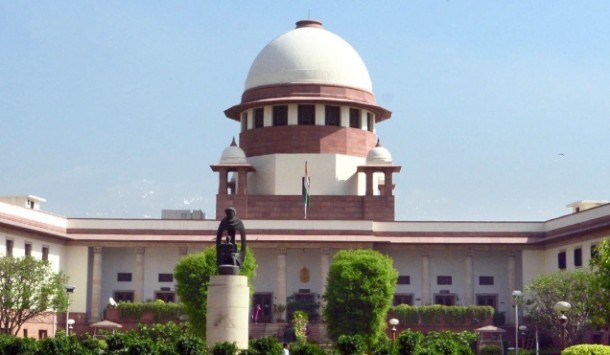
A "Zero Carbon Programme" will kick-in for both the construction and operation phases of the international airport at Mopa in Goa after the Supreme Court on Thursday lifted the suspension on the environmental clearance (EC) granted to the project spread across 2,131 acres.
Suspending the EC for the airport last year, the apex court had expressed concern on the impact on the biodiversity of the Western Ghats.
A bench headed by Justice D Y Chandrachud and comprising Justice Hemant Gupta said, "We have also taken note of the assurance which has been tendered on behalf of the concessionaire (Goa State Biodiversity Board and Directorate of Civil Aviation) that it will adopt a Zero Carbon Programme both in the construction and operational phases of the airport."
The court accepted the undertaking of the concessionaire and issued a direction for compliance.
In March last year, the apex court suspended the EC granted for the greenfield airport and directed the Expert Appraisal Committee (EAC) to revisit the decision in the backdrop of numerous concerns including the preservation of forests, the existence of Ecologically Sensitive Areas (ESAs) with their attendant features and the impact of the proposed project on natural water channels.
The Court had also noted the abject failure of the project proponent to provide complete information on the existence of reserved forests.
The court observed that the EAC took note of the presence of reserved forests and of ESAs in the Western Ghats and deliberated on the impact of the construction and operation of the proposed airport on flora and fauna, hydrological systems and climatic variations.
"We direct the National Environmental Engineering Research Institute (NEERI) to be appointed to oversee compliance with the directions cumulatively issued by this Court. The suspension on the EC shall accordingly stand lifted", said the court in the judgment.
Essentially, the concerns, highlighted in the March judgment, were connected to the preservation of the biodiversity of the Western Ghats. These concerns have been the subject of a seminal exercise carried out in 2013 by a High Level Working Group (HLWG) on the Western Ghats chaired by Dr K Kasturirangan.
The Centre expressed willingness to address the concerns in relation to the Western Ghats and the ESAs. Senior advocate ANS Nadkarni, representing the environment ministry, urged that the scope of the Kasturirangan Committee report was to suggest an all-round and holistic approach for sustainable and equitable development while keeping in focus measures to conserve, protect and rejuvenate the ecology in the Western Ghats.
The HLWG, with the aid of the National Remote Sensing Centre developed a scientific and objective methodology for identifying ESAs in the Western Ghats.
"In doing so, the HLWG bore in mind diverse parameters including forest and vegetation types, natural and cultural landscapes, forest fragmentation, biological richness, village boundaries, population density, protected areas, wildlife corridors and world heritage sites among other considerations", noted the court verdict.


.jpeg)

